Strategic Analysis Caucasus Brief
Review of the second half of December 2024
Tomáš Baranec
Armenia
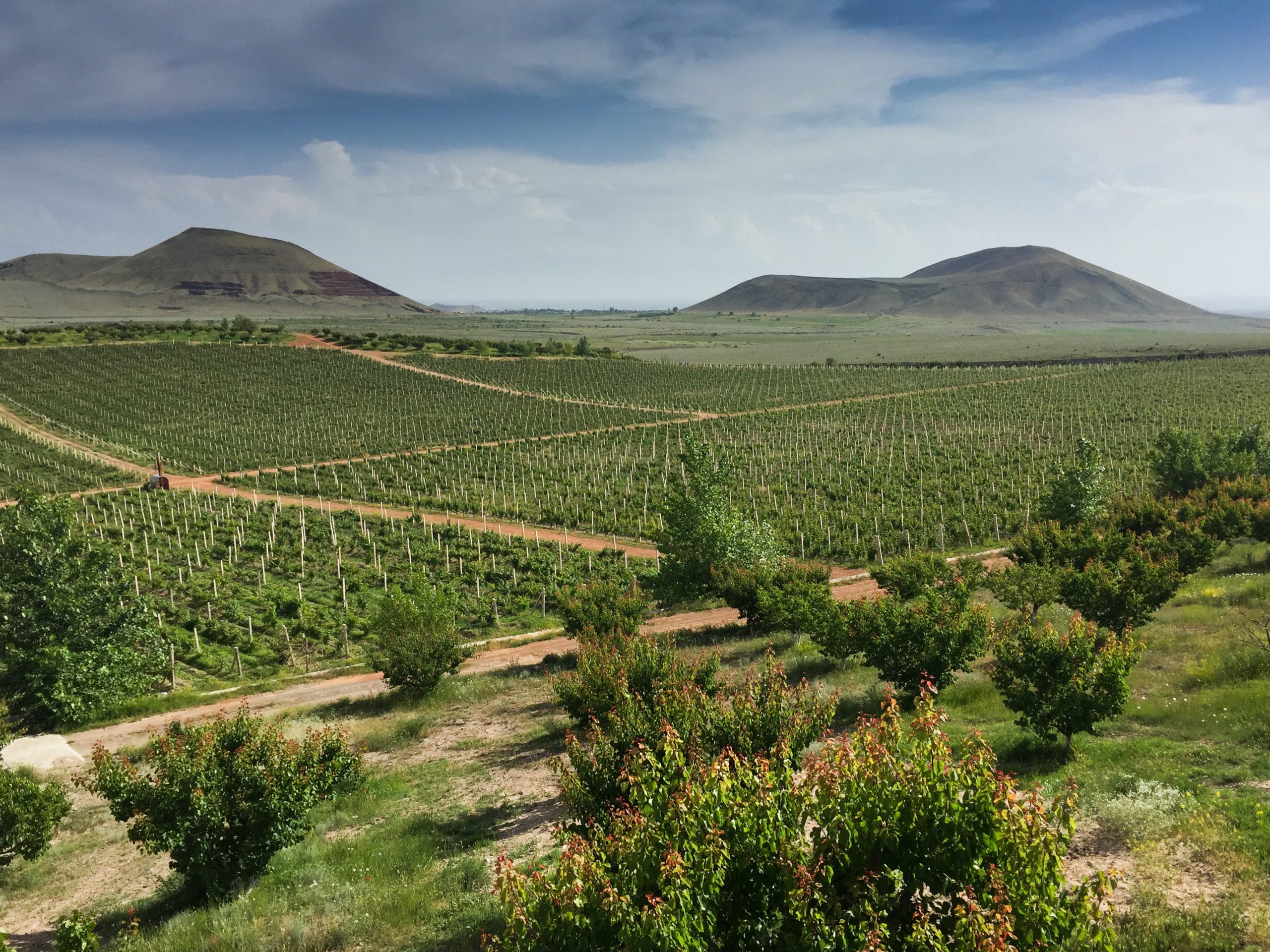
Vineyards, Aragatsotn province, Armenia. Photo: Elena Diego/ Shutterstock.com
Pashinyan and Lukashenko argue during the EAEU session
Armenian PM Nikol Pashinyan and Belarusian President Alexander Lukashenko exchanged verbal barbs following Pashinyan’s announcement that Armenia will participate in the May 2025 EAEU Minsk Summit remotely, via a video link, rather than in person.
The verbal spat took place during a meeting in St. Petersburg, which Pashinyan also attended remotely due to a positive test for COVID-19. “And what is your problem? Is Minsk far away? Is there no one to bring you? If necessary, we will organise the transfer of your delegation,” Lukashenko asked Pashinyan. Pashinyan replied that he had previously made a public statement on this matter, and it remains in force. “I do not think this is the right format for discussing these issues. You raised the issue, and I had to respond immediately so there would be no misunderstanding,” said Pashinyan.
In response, Lukashenko said that they would review Pashinyan’s statement, to which Pashinyan responded that his statement was not subject to review. “We will discuss it. Maybe there will be no TV link for you to make a remote speech,” said Lukashenko. “No problem, no problem,” Pashinyan concluded the debate, adding, “I understand that you may also have problems with TV. I treat it with understanding.”
The dispute began when, during the meeting, Lukashenka joked that they perceived Pashinyan as a “new and younger” member of the organisation because Pashinyan had shaved his beard. He also reproached those preferring to attend the meeting remotely, underscoring that it did not concern Pashinyan’s physical absence on the same day.
As OC Media reminded, ties between Armenia and Belarus have been in freefall since June 2024, when Pashinyan said that no Armenian officials would visit Belarus while Lukashenka was in power due to Lukashenka’s support for Azerbaijan during the Second Nagorno-Karabakh War of 2020.
Previously in May, amidst the continuing crises between CSTO and Armenia, Pashinyan told parliament that at least two CSTO members, likely referring to Belarus and Russia, participated in preparing for war against Armenia in 2020, with the goal of destroying Armenia’s statehood.
Sources:
- MIRZOYAN Armen, Hetq.am, “Pashinyan, Lukashenko Bicker at Minsk EAEU Session”, https://hetq.am/en/article/171791
- BARSEGHYAN Arshaluys, OC Media, https://oc-media.org/pashinyan-and-lukashenka-argue-during-eaeu-session/
Armenia proposes a reduction in working hours
In late December 2024, the Ministry of Labor and Social Affairs of Armenia introduced a draft law proposing a reduction in the standard workday from 8 to 7 hours and the workweek from 40 to 35 hours while maintaining existing wages.
This initiative, outlined in the draft law titled “On Amendments and Supplements to the Labor Code of the Republic of Armenia,” also includes revisions to minimum hourly wage rates to reflect the reduced working hours. The draft law has been posted on the legislative initiative website for public review.
“International experience and various studies show that reducing weekly working hours does not negatively affect the economy. On the contrary, it contributes to increased labour productivity and positively impacts the quality of life, improving the balance between work and personal life,” states the justification for the draft law.
It is noted that the World Health Organization has published studies showing that long working hours can lead to cardiovascular diseases and contribute to depression and stress. “Economic studies suggest that reducing working hours can boost productivity by encouraging employees to work more efficiently. It may also result in creating new jobs as part of a general economic trend,” the justification adds.
Sources:
- Zartonk Media, “Armenia Proposes 7-Hour Workday & 35-Hour Workweek, Down From 8-Hour Day & 40-Hour Week While Maintaining Wages”, https://zartonkmedia.com/2024/12/24/armenia-proposes-7-hour-workday-35-hour-workweek-down-from-8-hour-day-40-hour-week-while-maintaining-wages/
- Arka.am, “Armenia proposes 7-hour workday; Providing justifications”, https://arka.am/en/news/society/armenia-proposes-7-hour-workday-providing-justifications/?sphrase_id=2643500
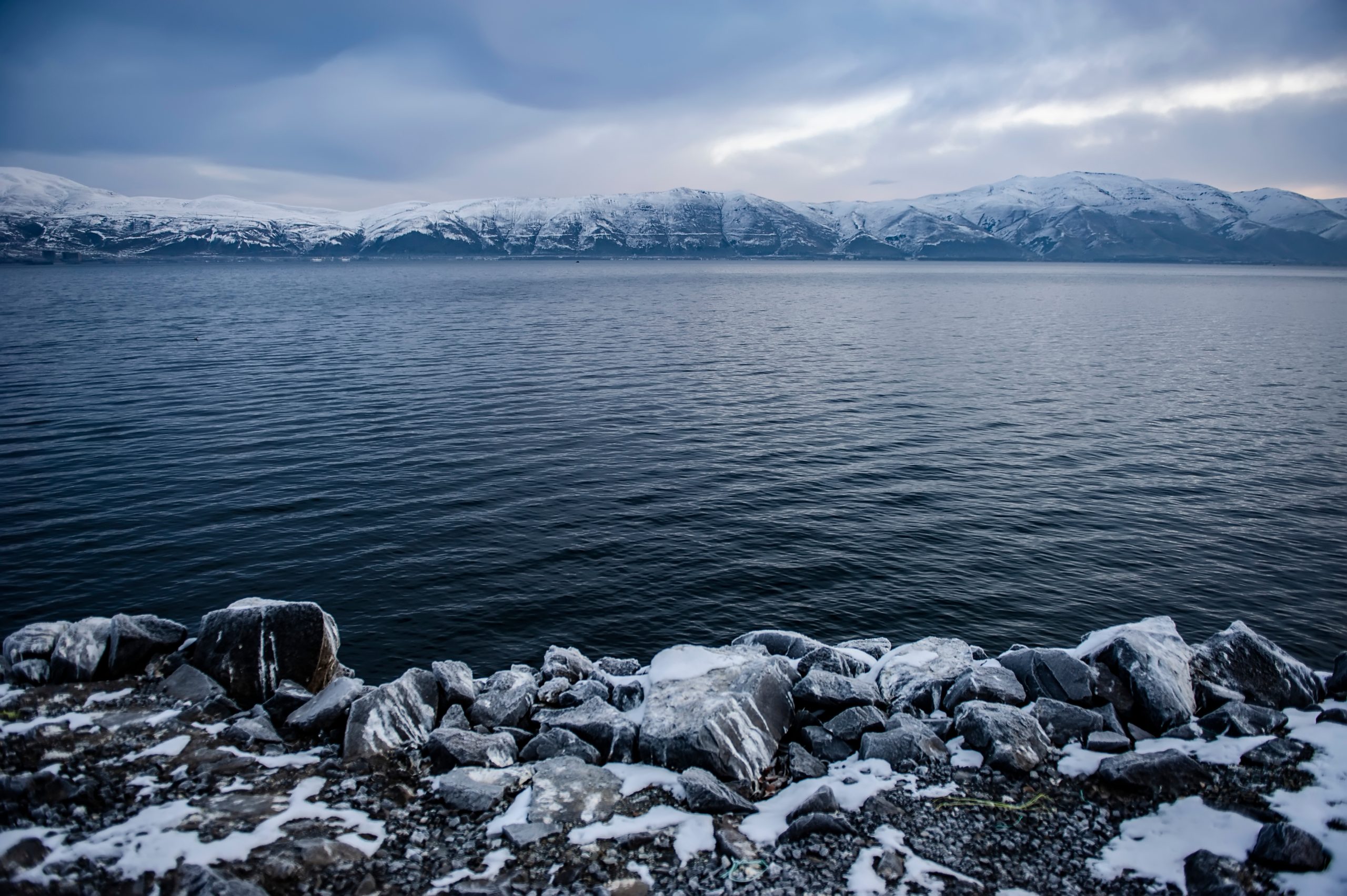
Photo: Shutterstock.com
Armenian deputy PM hails strong growth in trade with Russia
Armenia’s Deputy Prime Minister, Mher Grigoryan, expressed satisfaction with the significant progress in trade and economic relations with Russia, reported Caucasus Watch. Speaking to journalists after the Armenia-Russia Intergovernmental Commission meeting in Moscow, Grigoryan highlighted the nearly twofold increase in trade between the two countries as a remarkable achievement. “Of course, there is still work to be done to further develop this cooperation, but the nearly twofold trade growth is an excellent result,” Grigoryan stated.
The Deputy Prime Minister noted that many topics were discussed during the session, covering economic and trade relations, energy, and transport infrastructure. “We have recorded strong performance and systematic growth across all areas this year,” he remarked.
Grigoryan also highlighted significant increases in air and rail traffic between Armenia and Russia. As of December 15, over 28,000 tons of cargo were transported by air between the two countries, reflecting a 12 per cent increase compared to the same period the previous year. Additionally, approximately 2.4 million passengers travelled by air during the same timeframe.
Sources:
-
Caucasus Watch, “Armenian Deputy PM Hails Strong Growth in Trade with Russia”, https://caucasuswatch.de/en/news/armenian-deputy-pm-hails-strong-growth-in-trade-with-russia.html
Armenia-India-Iran trilateral consultations focus on regional connectivity, Chabahar Port, and multilateral cooperation
The second Armenia-India-Iran Trilateral Consultations were held on December 12, 2024 in New Delhi, informed ArmenPress. Based on the outcomes of the previous trilateral consultations held in Yerevan in April 2023, the sides discussed connectivity initiatives, engagement in multilateral fora, and regional developments, the foreign ministry said in a readout.
They also explored ways to promote trade, tourism and cultural exchanges while strengthening people-to-people contacts. During the consultations, the delegations emphasised the need to foster close cooperation under the INSTC and highlighted the role of Chabahar Port in this regard. The Armenian side briefed the participants on its “The Crossroads of Peace” initiative.
The sides reiterated their commitment to continued cooperation under the format. It was agreed that the next round of trilateral consultations would be held in Iran at a mutually convenient date and time.
Sources:
- Armen Press, „2nd Armenia-India-Iran Trilateral Consultations: Crossroads of Peace, INSTC discussed in New Delhi”, https://armenpress.am/en/article/1207355
Azerbaijan
City of Shusha. Photo: Eva Mont/ Shutterstock.com
Russia agrees with Azerbaijan to dissolve OSCE Minsk Group
The Organization for Security and Cooperation in Europe’s Minsk Group, set up in the 1990s to mediate the Nagorno-Karabakh conflict, should be dissolved, Russia’s Foreign Ministry spokesperson Maria Zakharova said. She suggested that the optimal solution would be a joint proposal from Armenia and Azerbaijan while emphasising that US and French co-chairs of the group have ceased communication with the Russian side since Moscow’s invasion of Ukraine in February 2022.
“All structures of the Minsk conference, meaning the Minsk Group and the post of the OSCE representative dealing with the Nagorno-Karabakh resolution, are subject to dissolution. We think that the optimal path for making such a decision would be a joint proposal by Baku and Yerevan to disband these structures,” Zakharova said at a press briefing.
Azerbaijan’s President Ilham Aliyev has repeatedly raised the issue of dissolving the Minsk Group, recently declaring it as one of Baku’s preconditions for signing a normalisation deal with Yerevan, highlighting that the formal dissolution requires Armenia’s consent. In response, Armenia’s ruling Civil Contract party members, including the country’s parliamentary speaker, Alen Simonyan, have argued that the Minsk Group may only be dissolved after the peace treaty is signed. The Foreign Ministry, however, issued a more ambiguous statement in August 2024, speaking of potentially continuing the Minsk process.
Sources:
- PRACHT Alexander, Civilnet.am, “Russia echoes Baku’s demands, says OSCE Minsk Group should be folded”, https://www.civilnet.am/en/news/810676/russia-echoes-bakus-demands-says-osce-minsk-group-should-be-folded/
- Armen Press, “Russia suggests disbanding all structures of OSCE Minsk Group on Nagorno-Karabakh conflict”, https://armenpress.am/en/article/1208380
Abzas Media trial began in Baku
On December 17, the case of Azerbaijani independent media outlet Abzas Media officially went to court. The defence filed several motions, but the court granted only one – allowing the accused to sit next to their defence lawyers. However, motions to dismiss the criminal case, return the case for further investigation, and change the preventive measure to house arrest were all rejected. The court also denied the request to allow journalists into the courtroom and to permit video recording of the hearings.
According to relatives of the journalists, they have rejected all charges and remain in good spirits. The accused journalist, Hafiz Babaly, called on Judge Rasim Sadykhov not to carry out a political order and to review the case objectively. Representatives from several Western embassies were present at the trial. MeydanTV reported that before the court process began, local journalists complained on social media that the court security officers did not allow them to enter the courtroom.
According to lawyer Shahla Humbatova, the seats inside the courtroom were taken up by law students as a way to stop the general public from viewing the trial. Speaking to MedyanTV, Humbatova claimed that 20 of these alleged law students had already passed the judge’s exam and begun practising law themselves. Following a protest from journalists and the defendants, the courtroom was cleared.
According to Vagifqizi, Abzas Media had previously investigated judges Rasim Sadikhov and Novruz Karimov, finding that they had both made decisions based on political orders from above, citing in particular the case of human rights lawyer Intigam Aliyev, who was sentenced to seven years and six months in prison in 2015.
The European Court of Human Rights (ECHR) later found that the trial had violated Article 18 (restriction of rights and freedoms for purposes not provided for) of the Convention. ”It has been proven that you [Sadikhov] made decisions based on political orders. You are not the one who will make decisions of your own free will,” Vagifqizi said in court. Despite the objections, Sadikhov and Karimov refused to recuse themselves from the case.
From November 2023 to January 2024, the leaders and staff of Abzas Media—Ulvi Hasanli, Sevinc Vagifgizi, Mohammed Kekalov, Nargiz Absalamova, and Elnara Gasimova—were arrested, along with investigative journalist and Turan news agency employee Hafiz Babali. In May 2024, economist and Radio Azadliq employee Farid Mehralizade was arrested in connection with the same case.
Initially, they were accused under Article 206.3.2 of the Criminal Code (smuggling by a group of individuals acting in collusion). However, from August 16 to 19, the charges were escalated to: Article 192.3.2 (illegal entrepreneurship with substantial income); Articles 193-1.3.1 and 193-1.3.2 (money laundering by an organised group); Article 206.4 (smuggling by an organised group); Articles 320.1 and 320.2 (forgery of documents and use of forged documents); and Article 213.2.1 (tax evasion by a group), all of which carry a penalty of up to 12 years in prison.
The journalists reject all charges, stating they are being persecuted for investigating corruption within the highest echelons of power in Azerbaijan. Human rights defenders have recognised them as political prisoners. Many international journalism and human rights organisations have denounced the charges as politically motivated and repeatedly called for the release of the journalists.
Sources:
- FARHADOVA Aytan, OC Media, “Abzas Media trial begins in Baku”, https://oc-media.org/abzas-media-trial-begins-in-baku/
- Turan, “Accused Journalists of Abzas Media Secured Passes to Attend Trial of Their Colleagues”, https://turan.az/en/politics/accused-journalists-of-abzas-media-secured-passes-to-attend-trial-of-their-colleagues-788713
- IRFS, Court Rejects Most of the Motions in the Abzas Media, https://www.irfs.org/news-feed/court-rejects-most-of-the-motions-in-the-abzas-media/
Azerbaijan to hold snap parliamentary election on September 1
Azerbaijani President Ilham Aliyev dissolved the Parliament on June 28 and set September 1 for elections, moving the vote up from November. The ruling New Azerbaijan Party initiated the move last week, saying that events to be held in the country, including the UN climate conference (COP29), warranted moving the date. The Constitutional Court approved the change on June 27.
Opposition politicians and parties criticised the move as a tool to falsify the elections’ results. Jamil Hasanli, who leads the National Council of Democratic Forces, an opposition bloc that includes the Popular Front Party and others, questioned the move’s legality. Hasanli told OC Media that according to the Azerbaijani Constitution, Parliament only had the right to dissolve itself under particular circumstances, which had not been met. “Only the President has this right to apply to dissolve Parliament, and the Constitutional Court should decide if constitution law was broken or not; they have a responsibility to defend the constitution… COP29 is not a valid reason for dissolving the Parliament; this is a political decision, not a judicial one”, he said.
It is unclear which opposition parties will choose to run. In previous elections, a number of candidates from the largest opposition parties, including the Popular Front Party and Musavat, have been barred from running. Azerbaijan last held parliamentary elections in 2020, with Aliyev’s New Azerbaijan Party winning 70 of 120 seats amidst widespread incidents of voter fraud. The remaining seats went to pro-government independent candidates and small opposition parties.
Sources:
- RFE/RL, “Azerbaijan To Hold Snap Parliamentary Elections On September 1”, https://www.rferl.org/a/azerbaijan-to-hold-snap-parliamentary-elections-on-september-1/33013106.html
- FARHADOVA Aytan, OC Media, “Azerbaijan to hold a snap parliamentary election on September 1”, https://oc-media.org/azerbaijan-to-hold-snap-parliamentary-election-on-1-september/
Georgia
Borjomi, spa town in Georgia. Photo: Anton Ivanov/ Shutterstock.com
Renewed calls for repeat vote in Georgia after critical OSCE observation report
On December 20, the OSCE’s Office for Democratic Institutions and Human Rights (ODIHR) released their long-awaited final report into Georgia’s October 26 parliamentary elections. The report detailed the allegations made by opposition groups and local observers of a campaign of widespread fraud. It said the dismissal of these complaints by the Central Election Commission and the courts “undermined the right to due process, failed to provide an effective remedy, and did not comprehensively address widespread concerns about the integrity of election results”.
OSCE stated that “frequent compromises in vote secrecy and several procedural inconsistencies” had “negatively impacted public trust in the process”. It also added that election day was “marked by a tense atmosphere and widespread intimidation of voters, as well as of citizen observers”.
“Reports of intimidation, coercion, inducement, and pressure on voters, especially public sector employees and the economically vulnerable persisted, raising concerns about the ability of some voters to freely form their opinions and cast their votes without fear of retribution”, it said.
The ruling Georgian Dream party welcomed the OSCE/ODIHR report with open arms, with GD’s Prime Minister Irakli Kobakhidze dedicating a briefing to it immediately after its release. Kobakhidze thanked the OSCE/ODIHR for “properly assessing” the elections in Georgia “despite attacks” from GD opponents and claimed that the report said the elections were “free and competitive.” “…certain shortcomings were identified, and polarisation was also seen as one of the main problems, both in the political spectrum and in the media. These are the issues on which we also have relevant information. Overall, it is clear from the OSCE/ODIHR report that the elections were free and competitive, this is clear from the general content of the OSCE/ODIHR report. I would like to thank the OSCE/ODIHR once again,” stressed Kobakhidze.
Following Kobakhidze’s claims, Shalva Papuashvili, GD’s Speaker of the Parliament, also devoted a briefing to the report, beginning by comparing it to the OSCE/ODIHR assessment of the 2024 elections in the United States. The comparison was made to emphasise “how grave their certain assessments are regarding the U.S.” and called to view the criticism in the report on Georgian in this context.
Meanwhile, President Salome Zurabishvili immediately stressed that the OSCE/ODIHR report had negatively assessed the elections, emphasising that the organisation’s “call for concrete action means new elections. That is the democratic way out of the deep crisis in which these elections have thrown Georgia.”
Georgia’s four main opposition groups, Strong Georgia, Unity — National Movement, the Coalition for Change, and For Georgia, published a joint statement calling the OSCE/ODIHR’s assessment “historically the most negative conclusion” the organisation has ever written on elections in Georgia. “The conclusion and set of recommendations published today by the OSCE/ODIHR confirmed the illegitimacy of the election results, which is the basis for re-elections”, their statement read.
Later, on December 23, the International Republican Institute’s (IRI) International Election Observation Mission (IEOM) as well issued its final report on Georgia’s parliamentary elections. The mission concludes that Georgia’s October 26 parliamentary elections were “fundamentally flawed,” outlining four main areas of concern and multiple recommendations for reform, with the mission’s Head, IRI’s President Dr. Daniel Twining, stressing that “only new elections can restore the Georgian people’s confidence in their government’s legitimacy.”
The report also makes 31 recommendations to “safeguard Georgia’s democracy,” including the repeal of the Foreign Agents Law. Other recommendations cover the electoral framework and competition, election administration, institutional integrity and oversight, and technology and open data.
Sources:
- OC Media, “Renewed calls for repeat vote in Georgia after critical OSCE observation report”, https://oc-media.org/renewed-calls-for-repeat-vote-in-georgia-after-critical-osce-observation-report/
- Civil.ge, “Domestic and International Reactions to OSCE/ODIHR Final Report on Georgia”, https://civil.ge/archives/647790
- Civil.ge, “IRI’s Final Report Says October 26 Elections ‘Fundamentally Flawed’, Calls for New Elections”, https://civil.ge/archives/647756
Mikheil Kavelashvili was inaugurated as the new President of Georgia
Disputed president Mikheil Kavelashvili has been sworn in as Georgia’s sixth president in a tightly secured parliament session attended solely by ruling party members and officials, while self-declared interim president Salome Zourabichvili addressed crowds outside her palace before vacating it, calling the inauguration a “parody”, reported OC Media.
Addressing parliament in the absence of opposition members, Kavelashvili commended Georgian traditions and family values and focused on the importance of peace for Georgians, which he claimed was best represented by the Georgian supra feast. “You will probably agree that we, the Georgian people, are distinguished by our strong emotions, which our adversaries often exploit. That is why we must act with particular caution and foresight. Analysing the mistakes of the past should serve as the foundation for every decision we make in the future. We are guided solely by our national interests”, Kavelashvili stated.
As OC Media noted, Kavelashvili made two general references to the “European family” without specifically mentioning the European Union and entirely omitted any reference to NATO or Georgia’s aspirations for its membership — both enshrined in Georgia’s constitution that he insisted on respecting only when addressing political disagreements.
At the same time, Georgian President Salome Zurabishvili addressed the people near the Orbeliani presidential palace. Addressing the public in the same outfit in the Georgian flag colours that she wore at her inauguration, she said: “Let’s remember what legitimacy is; it comes from the only source – and that source is you, the people. Where there is no trust of the people, there can be no legitimacy, and that is why I will come out and be with you.” “Six years ago, I swore an oath to the constitution, but more importantly, to my country… That’s why I’m here today… I’m going to come out of here and come to you and be with you. This building doesn’t belong to anyone. This building was a symbol while the President, who was legitimate, sat there. I’m taking away the legitimacy, I’m taking away the flag, I’m taking away what is your trust,” she stressed.
Zurabishvili described the GD authorities as “scared, illegitimate, sold out, sanctioned and angry”. “Because there is a parody, there are two different images here. There are those who are locked up [in the parliament], afraid, sold out, illegitimate, not recognised by anyone, sanctioned and angry. We are open, free, joyful, very calm. The truth is with us because we have love for the country, and with us, perhaps more importantly, we have love for each other, and that is why we will win,” she stressed.
Earlier, during a special briefing on December 22, GD PM Irakli Kobakhidze twice threatened Zurabishvili with imprisonment. “Salome Zurabishvili will have to leave office on December 29. Let us see where she continues to live – beyond the bars or behind the bars. I think she would have enough sense not to violate the Criminal Code,” Kobakhidze asserted. “I assure you, nothing much will happen until December 29. “Deep state” won’t win in Georgia, and radical opposition won’t win. There, of course, cannot be any serious plan from the side of the radical opposition, including Zurabishvili.” He continued, “If we imagine a theoretical scenario […] of her barricading herself inside the presidential residence, this is the crime foreseen by the Criminal Code. Let me repeat that nobody may want to send a 72-year-old woman to prison, but in deciding to act this way, she is sacrificing all those people who may be with her inside the presidential residence. I repeat – I hope that she would have a sense of not violating the Criminal Code and not letting others do so and risk multi-year prison terms.”
Kobakhidze also spoke about the potential imprisonment of Zurabishvili in another context. He argued that “there are no legal grounds for scheduling repeat elections” – something that President Zurabishvili and the opposition have called for. Saying that the Central Election Commission has validated the election results, while the Constitutional Court has ruled on the appeal by the President, Kobakhidze said the legal grounds for calling the repeat elections have been exhausted. As for snap elections, they can only be called if the government loses the vote of confidence, which did not happen, he continued.
Sources:
- KINCHA Shota, OC Media, “Kavelashvili takes presidential oath as Zourabichvili condemns inauguration as a ‘parody’”, https://oc-media.org/kavelashvili-takes-presidential-oath-as-zourabichvili-condemns-inauguration-as-a-parody/
- Civil.ge, “President Zurabishvili: I Am Taking Legitimacy With Me”, https://civil.ge/archives/648760
- Civil.ge, “GD’s Kobakhidze Threatens President Zurabishvili with Imprisonment”, https://civil.ge/archives/647490
US sanctions Bidzina Ivanishvili
On December 27, The US sanctioned the billionaire founder and honorary chair of Georgian Dream, Bidzina Ivanishvili, for “undermining the democratic and Euro-Atlantic future of Georgia for the benefit of the Russian Federation”. The US Secretary of State Antony Blinken specified that the US had designated Ivanishvili pursuant to Executive Order 14024 for his and his party’s actions. “Ivanishvili and Georgian Dream’s actions have eroded democratic institutions, enabled human rights abuses, and curbed the exercise of fundamental freedoms in Georgia. Furthermore, they have derailed Georgia’s Euro-Atlantic future, a future the Georgian people overwhelmingly desire and the Georgian constitution mandates”, reads Blinken. „The result has left Georgia vulnerable to Russia, which occupies more than 20 per cent of Georgia’s territory“.
The sanctions against Ivanishvili freeze his US assets, if any, and prohibit US citizens and entities from conducting business with him without specific authorisation from the US Treasury Department’s Office of Foreign Assets Control (OFAC). The OFAC also issued a general license allowing US persons to engage in all transactions with any entity in which Ivanishvili owns a 50% or more share — provided that the entity is not on the Specially Designated Nationals and Blocked Persons list.
“However, US persons are still prohibited from transacting with Ivanishvili himself unless exempt or otherwise authorised by [the] OFAC”, they said. The Treasury Department has also barred Ivanishvili from receiving 461 million USD in damages from the UBS Group AG, a multinational investment bank and financial services company, over a long-running legal battle with Credit Suisse — a bank the UBS acquired in March 2023.
In 2018, former Credit Suisse banker Patrice Lescaudron was convicted of fraudulently taking money from several high-profile clients, including Ivanishvili. On May 7, 2024, Bloomberg reported that Ivanishvili had launched a new lawsuit against the troubled bank for 220 million USD. According to the article, Ivanishvili has already been awarded 1.34 billion USD by courts in Bermuda and Singapore over the affair, although Credit Suisse had vowed to appeal these decisions.
Irakli Kobakhidze, GD’s Prime Minister reacted by saying that Ivanishvili “was under de facto sanctions before, and he was blackmailed for almost three years with formal sanctions”. “Now that this so-called basis for blackmail has been removed, I don’t know what the opposition has left to do. In fact, nothing has changed; de facto sanctions were already in effect, and these de facto sanctions, informal sanctions, were in effect because of one thing – this person [Ivanishvili] did not give up the national interests of this country,” said Kobakhidze.
On the other hand, according to Giorgi Vashadze from the coalition Unity-UNM, “the people’s struggle brought its results”. The whole world sees the protest of the Georgian people, and this is a serious success of this protest… Therefore, I welcome this step from the United States of America. I think that we are quickly moving towards victory, and [we] will celebrate Georgia without Ivanishvili, who brought chaos and misery to this country.”
Sources:
- BARDOUKA Yousef, OC Media, “US sanctions Bidzina Ivanishvili”, https://oc-media.org/us-sanctions-bidzina-ivanishvili/
- Civil.ge, “Domestic and International Reactions to U.S. Sanctions Against Ivanishvili”, https://civil.ge/archives/648622
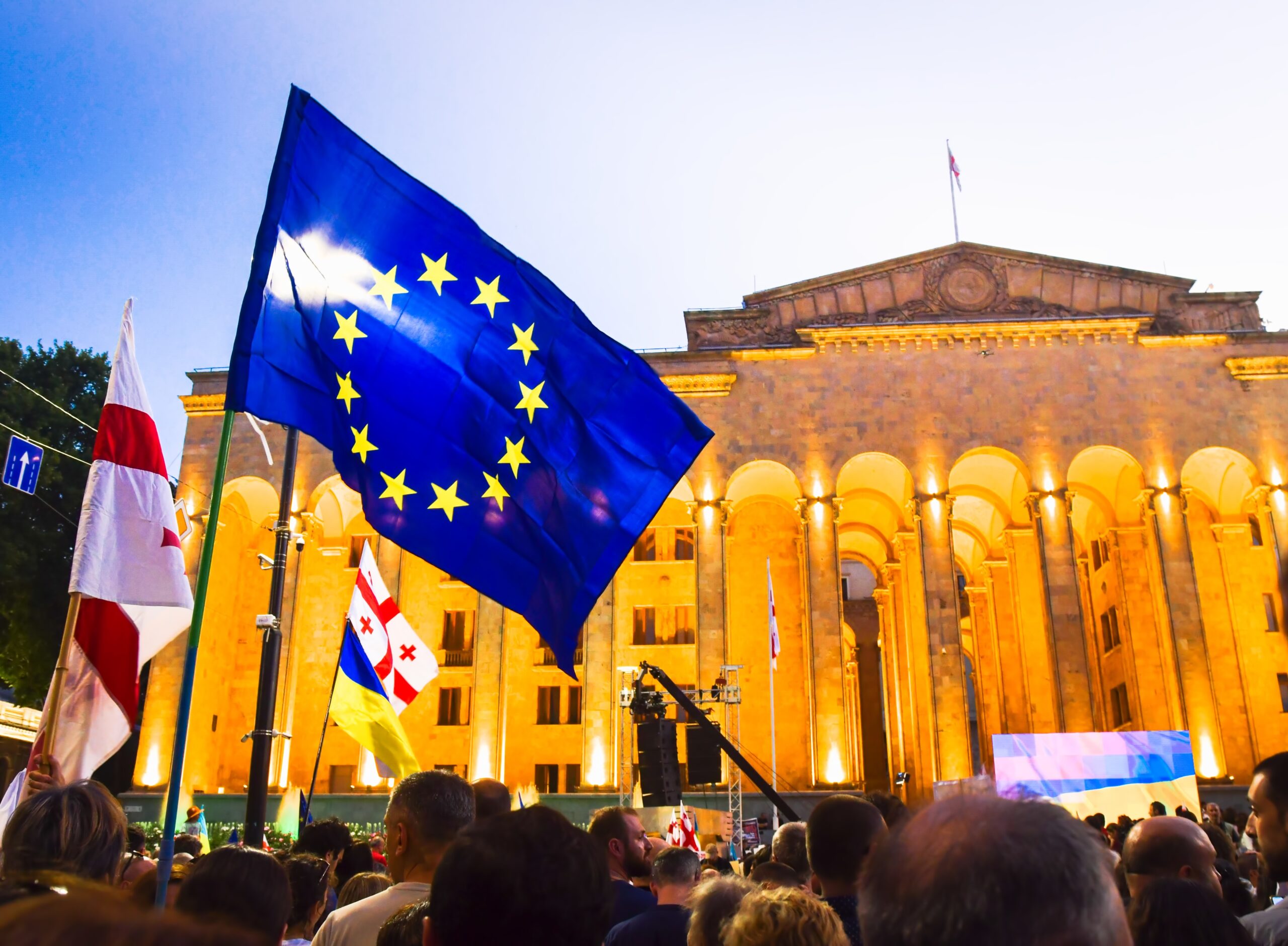
Photo: Shutterstock.com
Imedi TV owner skewers GD and PM Kobakhidze
Irakli Rukhadze, owner of pro-government Imedi TV, gave an interview on his channel in which he said about the Georgian Dream narrative that “if at some stage, you don’t believe in the premise that Georgia was really asked [by Europe] to get involved in this war [between Russia and Ukraine], every subsequent action that Georgian Dream has done is madness and can not be explained.”
Rukhadze recounted his intervention during the business community meeting with GD PM Irakli Kobakhidze on December 23, where Kobakhidze recounted the whole narrative of his actions, which was “very complicated” and “many people” find it hard to believe. Rukhadze says he told Kobakhidze, “The fact that we listened carefully to you does not mean we all agree with you,” and argued, “When this narrative is told, this premise [about the war] needs to be very well explained.”
The businessman further skewered Kobakhidze personally, saying, “When one has such a difficult job, one must stay alert. For example, one must not make the statement like we heard on November 28 [about halting EU accession], which then one is forced to deny,” said Rukhadze as cited by Civil.ge.
Commenting on GD’s choice of Mikheil Kavelashvili as a presidential candidate, Rukhadze said, “A more unifying person could have been chosen, which would have worked constructively with the West.”
Irakli Rukhadze is a senior partner at UK-registered Hunnewell Partners, which manages several major assets in Georgia, including Imedi TV, Liberty Bank, Heidelberg Cement, Rustavi Steel, and communication giant MagtiCom. He has been a long-term partner and supporter of Bidzina Ivanishvili, GD patron. According to his profile page at the Liberty Bank, where he serves as a board member, he is currently a US citizen, noted Civil.ge.
Sources:
-
Civil.ge, „Imedi TV Owner Skewers GD, Kobakhidze”, https://civil.ge/archives/648177
Kavelashvili signs into law repressive legislation
On December 29, Georgian Dream’s elected President Mikheil Kavelashvili approved several legislative amendments on the day of his inauguration, immediately after being sworn in, reported Civil.ge. Amendments mostly touch civil service, protests and local self-government election system. The amendments stipulate that the heads and deputy heads of primary structural units in public institutions will no longer be professional public servants. Instead, they will be individuals employed under administrative contracts.
The new regulations simplify the reorganisation process. Critics say this change can be used as a tool for political purges. The protections for public servants, including those provided through judicial mechanisms, have been weakened. The new restrictions regarding protests will affect, among other things, drivers who join demonstrations. If drivers join a protest march and the police determine that traffic is disrupted, the driver will face a fine of 1,000 GEL (app. 339 EUR) and a one-year suspension of their driving license.
Also, placing protest stencils, inscriptions, or posters that damage the city’s appearance without authorisation will result in fines of up to 1,000 GEL (app. 339 EUR). If a protest blocks a road but the police determine there are insufficient participants to justify the blockage, all participants may be fined 5,000 GEL (app. 1694 EUR). If the most active participant is identified as an organiser, they may face a fine of 15,000 GEL (app. 5081 EUR).
The new restrictions will also apply to pyrotechnics and lasers at demonstrations. Attending a protest with pyrotechnics, regardless of whether they are used, will result in a fine of 5,000 GEL (app. 1694 EUR). If deemed organised, the organiser may face a fine of 15,000 GEL (app. 5081 EUR). Administrative detention of up to 15 days may also apply instead of a fine. Similarly, possessing laser devices or other high-intensity light sources at a protest that could disrupt state officials’ activities or the functioning of their equipment will result in a fine of 2,000 GEL (app. 677 EUR). Covering one’s face with a mask or any other means during a protest will result in a fine of 2,000 GEL (app. 677 EUR).
Furthermore, during the spring of 2024, GD unilaterally adopted the changes, abolishing the 40% electoral threshold for electing majoritarian members of municipal councils and the possibility of holding a second round. The election code was again amended and signed by Kavelashvili, and the electoral threshold for the proportional system increased to 4%, up from 3% and 2.5% in Tbilisi.
The Georgian Young Lawyers’ Association (GYLA) has previously strongly criticised the legislative changes, warning that they could undermine democratic principles and roll back vital reforms aimed at ensuring fair representation and protecting citizens’ rights.
“On December 11, 2024, the 14th day of pro-European protests, under conditions of massive human rights violations in the country, the Georgian Dream initiated undemocratic and repressive amendments to several laws at once in the self-proclaimed parliament,” the statement says. GYLA adds that the amendments have been rushed through and pushed through through a simplified procedure.
Sources:
- Civil.ge, “GD Elected President Kavelashvili Signs Into Law Repressive Legislation”, https://civil.ge/archives/649022
- Civil.ge, “GYLA Criticize New Legislative Amendments, Warns of Democratic Backslide”, https://civil.ge/archives/643981

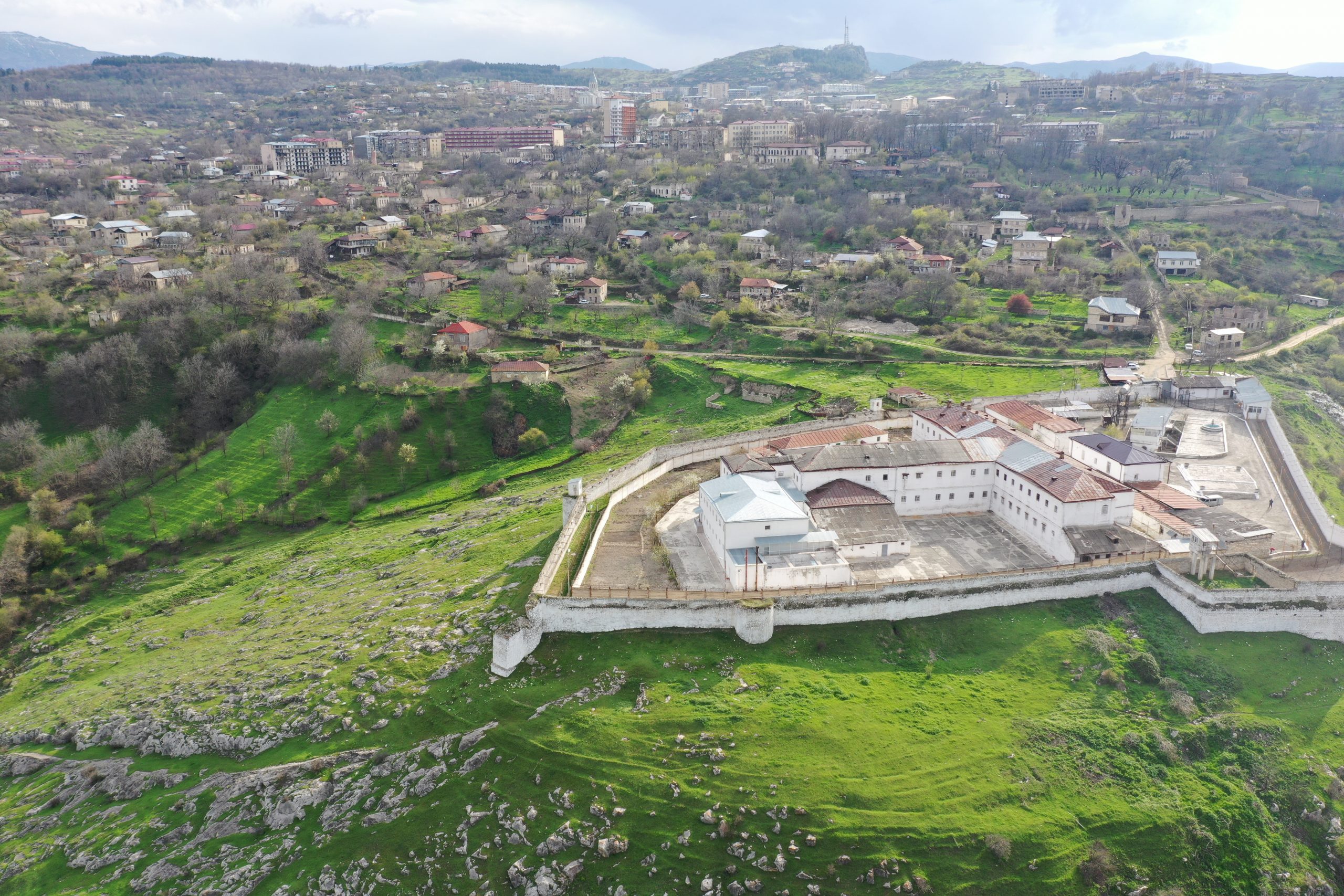
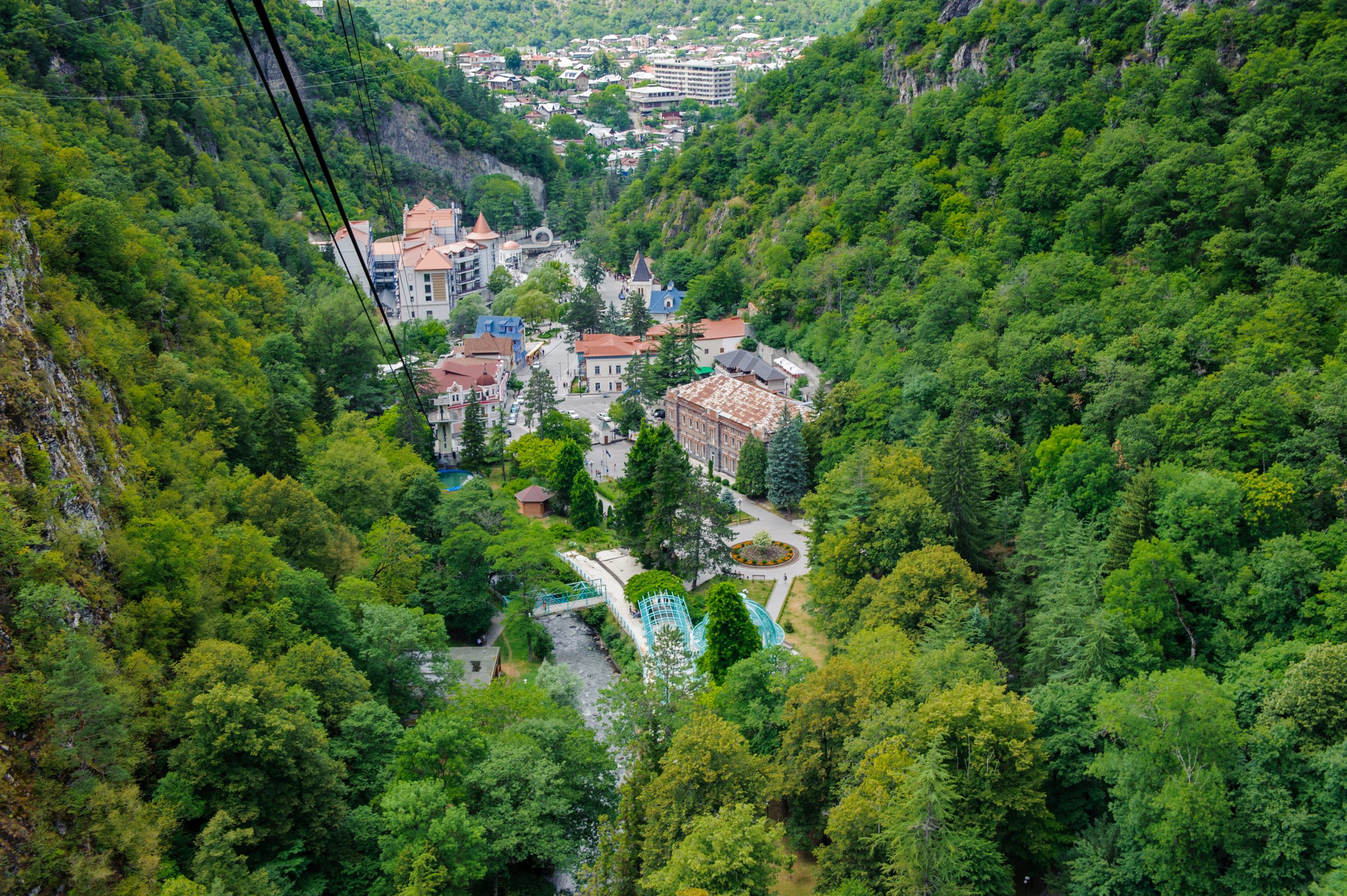
Contact us